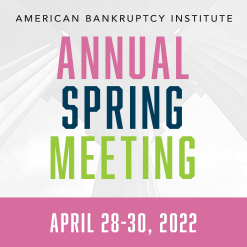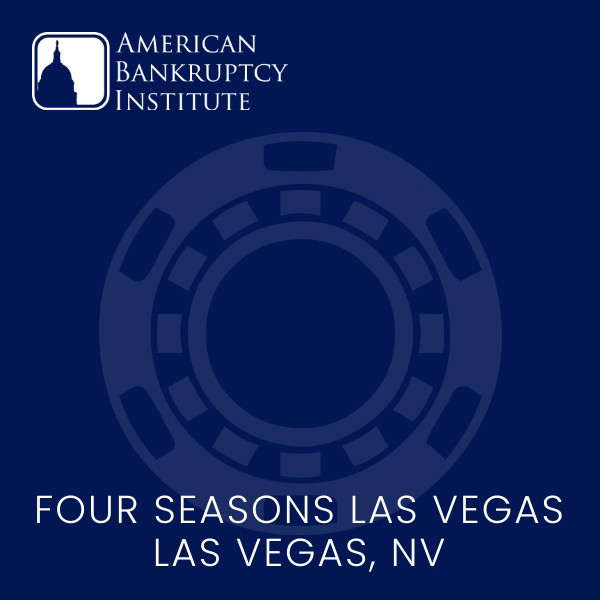| |
| |
| vol 8, num 1 | March 2022 |
| |
|
|
| |
|
|
|
|
|
| |
| Mediation Committee Happenings: March 2022 |
| Just when we thought we were in the clear from this COVID thing, we have been experiencing another not-so-small blip; however, this go-around there has not been a shutdown (yet). Even with the stops and starts, our Mediation Committee remained active. We have increased our committee membership and participation in committee leadership. We presented at the in-person and virtual inclusive ABI Winter Leadership Conference. We submitted our ABI annual report, which reflected how active our committee has been — even in comparison to pre-COVID times. How adaptive we can be.
Join our Mediation Committee and listen, learn about and provide input on the changing times of mediation.
Upcoming Annual Spring Meeting 2022
The committee has submitted a program proposal for Annual Spring Meeting 2022 titled, “How Stress and Remote Work Affect Mediation.” The program will be in two parts. In the first part, Dr. Bruce Rabin will talk about the mental and physical effects of stress and discuss skills that will minimize the effect of stress, with a question-and-answer period to follow. The particular focus will be on the influence the pandemic has had on stress in client relations and decision-making regarding the resolution of disputes. Dr. Rabin will explore concepts of isolation, changes in behavior and health due to the pandemic, and how negotiation strategies for in-person or remote mediations are affected by this type of stress. Dr. Rabin comes highly recommended by judges who have heard him speak on topics related to stress and stress management for the Federal Judicial Center and at
circuit conferences. The second part of the program will be a discussion by two experienced mediators on how the factors Dr. Rabin discussed have affected mediation, using stories from the trenches.
|
| |
|
|
|
|
| |
|
| |
| Mediation Training: A Right-On Periodic Requirement that Is Both Beneficial and a Necessity? |
| In late 2020, I received a letter from the judge who presides over the New Jersey Bankruptcy Court’s mediation program inquiring as to whether I satisfied New Jersey’s annual mediation skills requirements. I immediately asked myself, “What requirements?”
I pulled out the local rules and found that the New Jersey Bankruptcy Court local rules in D.N.J. LBR 9019-1(c)(1) require the following of its mediators: (a) at least 10 years of professional experience in their field of expertise; (b) in good standing; (c) for applicants who have little to no mediation experience, participation in a mediation-skills course for a minimum of 20 hours, followed by an advanced mediation-skills course for a minimum of 20 hours, and for new mediators, observation of mediations; and (d) completion of four hours a year of continuing mediation training. As with any well-drafted rule, there is an exception, a waiver of training and mediation experience where an acceptable substitute for the required training is provided and approved.
|
| |
|
|
|
|
| |
|
| |
| Announcing Our Committee's Panel at the Annual Spring Meeting! |
 |
| ABI is pleased to announce the in-person return of the Annual Spring Meeting. Always one of the most significant annual gatherings of bankruptcy and insolvency professionals in the country, ABI's Annual Spring Meeting provides the ultimate in learning and networking opportunities for the insolvency community — both in person and online.
Join The Mediation Committee for their panel, "How Stress and Remote Work Affect Mediation," which will feature Dr. Bruce Rabin of the University of Pittsburgh School of Medicine.
Based on his distinguished 45-year career dealing with stress and human health, Dr. Bruce Rabin, a highly regarded and recognized authority on the topic, will present a timely program identifying mental and physical effects of stress and introducing skills to minimize those effects. Dr. Rabin will explore concepts of isolation, changes in behavior and health due to the pandemic, and how negotiation strategies for in-person or remote mediations, client relations and decision-making are affected by this type of stress. |
| |
|
|
| |
|
|
|
|
|
|
|
|
|
| |







